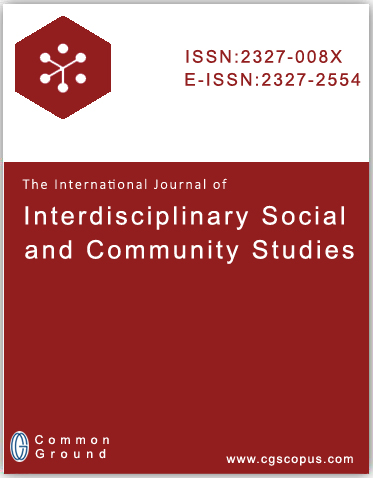DEVELOPMENTAL CRIMINOLOGY AND ‘SAMSKARAS’: NEED OF COLLABORATIVE APPROACH IN ADDRESSING CRIMINALITY
DOI:
https://doi.org/10.18848/ndp3v719Keywords:
Developmental Criminology, Developmental Criminology Criminality, Criminality, Restorative justiceAbstract
The intersection of Samskaras, the ingrained habits and mental impressions shaped by experiences, and developmental criminology offers a profound perspective to thoroughly examine the development of criminal behaviour and a way to thwart it. A collaborative approach integrating the philosophy of Samskara with the science of developmental criminology can be effective in addressing the complexities of criminality. Samskaras are foundational in Hindu philosophy, encompassing a range of cultural practices that influence individual behaviours, while developmental criminology focuses on understanding how various life stages, environmental factors, and social interactions contribute to criminal behaviour over time. The interplay between Samskaras and criminality is significant. From a developmental perspective, early childhood experiences, familial relationships, and community environments shape the Samskaras that inform future behaviours.
This paper proposes for a collaborative leading to the development of comprehensive intervention programs based on the philosophy of Samskaras that account for the social, and cultural dimensions of individuals. This aligns with the principles of developmental criminology, which emphasize early intervention and the importance of supportive relationships throughout an individual's life course. Furthermore, this collaborative framework can enhance community engagement and participation, empowering local actors to play an active role in shaping positive Samskaras. Communities that actively promote pro-social behaviours through Samskaras, can help instil obeyance that deter criminal behaviour. By focusing on the root causes of criminality rather than merely its symptoms, this approach encourages a restoration and reformation in social justice systemand enable the stakeholders to design interventions that are more nuanced, culturally sensitive, and more effective.
By recognizing the role of Samskaras, practitioners and researchers can better understand the idea of practicing reinforcement on compliant behaviours as a counter of formation of criminal behaviour, moving with the simple explanation of shaping the unbaked clay and transforming it into a beautiful masterpiece that adds value to the society instead of creating criminal disturbance.










